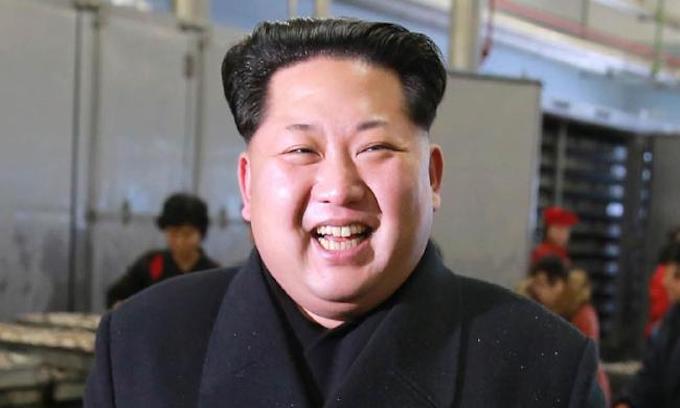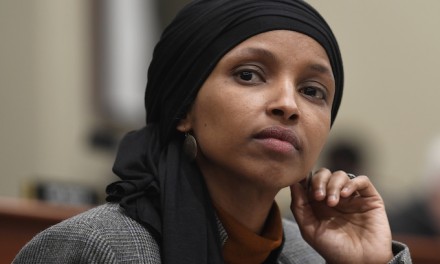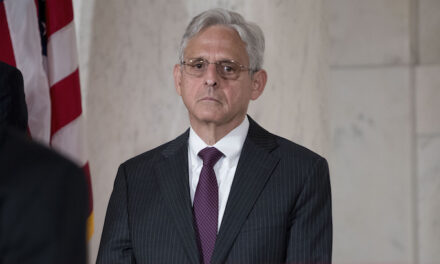SEOUL — North Korea has delayed its much-anticipated “Christmas surprise” of a major intercontinental ballistic missile test out of concern that such a provocation — after two years of stop-start nuclear diplomacy — would trigger sharp negative reactions from Washington and the international community.
South Korean analysts, including a high-level defector from the North, say Pyongyang’s planning for a launch also has been delayed by the coronavirus outbreak in China, which shares a long border with North Korea and serves as its closest security and economic ally.
“The most friendly country of North Korea — China — is having serious difficulties, and North Korea doesn’t want to make things worse,” said Lee Gee-dong, vice president of the Institute for National Security Strategy in Seoul. “I think for the coming three or four months, it will be quite quiet and the North Koreans will not carry out any provocative or dangerous actions against the world.”
After three inconclusive meetings between President Trump and North Korean leader Kim Jong-un, Pyongyang threatened to take a “new path” if the U.S. didn’t back off its demands for swift denuclearization by the start of 2020. But Mr. Lee said in an interview that North Korea’s Mr. Kim likely believes the launch of an intercontinental ballistic missile (ICBM) or a submarine-launched ballistic missile (SLBM) would anger and unsettle China as well as nearby Russia.
The Kim regime’s apparent concern is that a major missile launch at this time would make Moscow and Beijing less willing to stand up for Pyongyang on the international stage — essentially paving the way for Washington to pressure the U.N. Security Council to increase sanctions on North Korea.
“The North Koreans did not come through with any ‘Christmas present’ and they have not taken any ‘new path’ because they are well aware of the side effects that could be had,” Mr. Lee told The Washington Times. He said the Kim regime is “wary of ruining the relationship it has successfully built with Russia and China and the support it is getting from those two countries.”
Kim In-tea, a former North Korean official who defected a decade ago and now works as an analyst with Mr. Lee in Seoul, said the Kim regime appears most focused at the moment on an internal reshuffling in preparation for “a long-term stall in negotiations” with Washington.
“About 30% of 230 high-level cadres inside the North Korean government have been reshuffled,” he said, adding that the moves mainly involve officials tasked with managing domestic affairs. The regime, he said, “is preparing to go through the current difficulties it is facing.”
One high-profile move has been the elevation of outspoken retired army Col. Ri Son-gwon as North Korea’s foreign minister, although U.S.officials say they are still trying to get a clear read on Mr. Ri, who has no history of involvement in denuclearization talks.
There is also uncertainty over how North Korea will react to impending U.S.-South Korean joint military drills. Pyongyang has seized on such drills in the past to justify provocative missile tests.
Watching the U.S. vote
The U.S. election calendar is also factoring heavily into the Kim regime’s calculus, said Haksoon Paik, a longtime North Korea analyst and president of the Sejong Institute, a prominent South Korean think tank.
“North Korea understands that Donald Trump is in a re-election campaign and perceives him to be unlikely to do anything new with regard to U.S. policy toward North Korea,” Mr. Paik said.
“I think 2020 will be a year in which the United States and North Korea, even though they do not mention it publicly, both understand each other,” he said. “The North Koreans will not provoke as long as the United States does not provoke, and I think Donald Trump understands that as long as we do not provoke Kim Jong-un, he will not respond or make the first move.”
Mr. Trump is being closely watched after U.S.-North Korean denuclearization talks essentially stalled out since the breakdown of the February 2019 Hanoi summit. Mr. Trump made no mention of North Korea in his State of the Union address last week, and the White House announced an unexpected change to its North Korea policy team Tuesday.
Officials said Alex Wong, who had been overseeing operations in the State Department’s special representative for North Korea office, has been nominated to be political affairs ambassador at the United Nations. The move could suggest that Mr. Trump is de-emphasizing North Korea from his foreign policy agenda.
The president has shown signs of cooling to the idea of a third summit with Mr. Kim after months of North Korean rejection to repeated U.S. requests for working-level negotiations. CNN reported this week that Mr. Trump has told foreign policy advisers he does not want another summit before the election, although National Security Adviser Robert O’Brien has left the diplomatic door open.
“We’ll have to see as to whether another summit between the leaders is appropriate,” Mr. O’Brien told an audience at the Atlantic Council on Tuesday. “President Trump has made it very clear that if he can get a great deal for the American people, he’ll go to a summit, he’ll go to a meeting, he’ll talk to just about anybody. But we have to be able to get a good deal.”
“Right now,” Mr. O’Brien said, “there’s not a scheduled summit.”
Some analysts say Pyongyang’s unwillingness to engage in working-level talks has led to wariness in the administration about being tricked by a regime that has a history of drawing out negotiations indefinitely while clandestinely building up its nuclear and missile arsenals.
“It will take working-level negotiations to produce a [denuclearization] deal,” David Maxwell, a North Korea analyst with the Foundation for Defense of Democracies, said in comments circulated online Wednesday, “but Kim has to allow them. Instead he is still relying on blackmail diplomacy to support his long con. The administration is not falling for it.”
Recovering from Hanoi
The stalemate is starkly different from 2017, when Mr. Trump responded to North Korean threats, nuclear detonations and ICBM tests by asserting that the U.S. would respond with “fire and fury like the world has never seen” if Pyongyang did not halt its provocations.
The brinkmanship later led to a diplomatic push and a historic June 2018 summit in Singapore, where Mr. Kim agreed to “work toward” the goal of denuclearization of the Korean Peninsula in exchange for security guarantees from Washington. North Korea also halted ICBM and nuclear tests as a show of good faith in possible follow-on negotiations.
Then came the February 2019 Hanoi summit, where Mr. Trump walked away from negotiations. He said the North Koreans demanded sweeping sanctions relief in exchange for only a limited commitment to destroy part of their nuclear arsenal. The Kim regime challenged that characterization.
While the Hanoi collapse remains a matter of debate, the North Koreans have carried out waves of short-range missile tests. It also made headlines by demanding that the U.S. change its “calculation method” by the end of 2019 or the Kim regime would take a “new path.”
The ultimatum triggered fears that a resumption of long-range ICBM tests may be imminent.
However, some argue that the Kim regime was trying to send a basic message to Washington in the aftermath of Hanoi.
Mr. Paik said the North Koreans came out of Hanoi believing Mr. Trump wanted an initial denuclearization deal but was overridden by hard-line advisers such as Secretary of State Mike Pompeo and then-National Security Adviser John R. Bolton, whom Pyongyang accused of wanting to overthrow the regime.
What the Kim government has been demanding since is that “the U.S. give up its regime change policy and come up with a policy of accommodating peaceful coexistence with North Korea,” Mr. Paik said.
The big question now, he said, is whether Mr. Trump can “really override the opposition of hard-liners in his government and in the wider Washington national security establishment — even if he is reelected.”
Mr. Trump fired Mr. Bolton in September, but it remains to be seen what impact new players in the administration, particularly Mr. O’Brien, will have on North Korea diplomacy.
“We’d like to see negotiations continue if they are negotiations that lead to North Korea honoring the commitment that Chairman Kim made in Singapore,” Mr. O’Brien said Tuesday.
“If there was an opportunity to move the ball forward for the American people, [Mr. Trump] is always willing to do that. Whether it’s viewed to be politically expedient or not, he’s looking to do things that are good for the country.”
© Copyright (c) 2020 News World Communications, Inc.



















Recent Comments